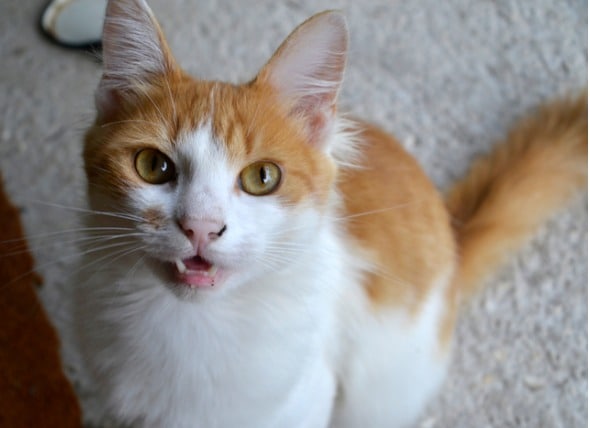oral cancer in cats causes
Oral squamous cell carcinoma is cancer of the lining of the oral cavity including the gingiva gums tongue palate and tonsils. Loose teeth or loss of teeth.
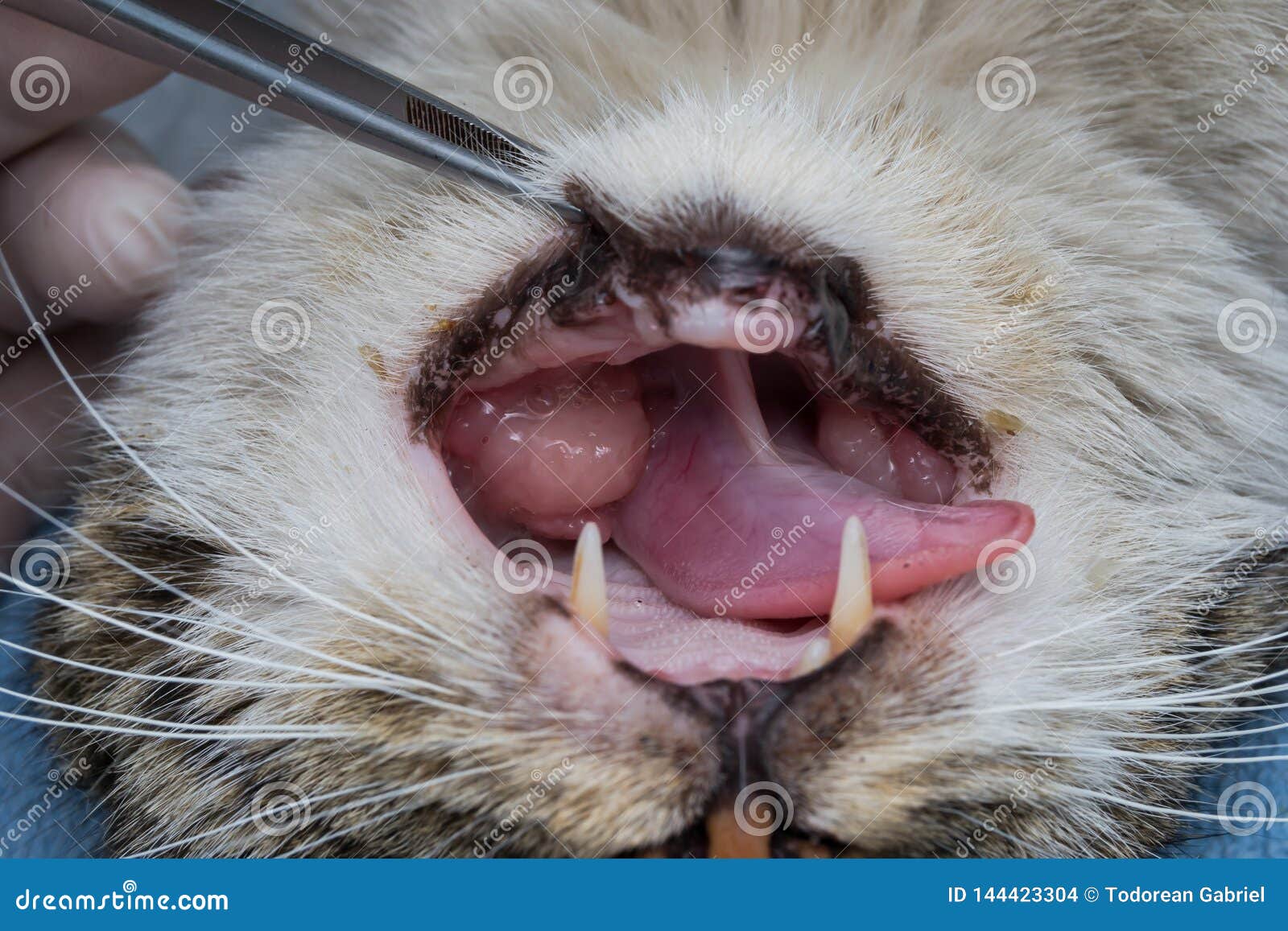
Eosinophilic Granuloma In The Mouth Of A Cat Cat With Oral Tumor Stock Photo Image Of Surgery Medical 144423304
Weight loss primary symptom Vomiting.

. Affected cats may become dull inappetant and slow to move around. Often the lameness is severe with the cat refusing to place the affected limb on the ground. The rate of metastasis at the time of diagnosis is low.
While it is not extremely common it is still a risk factor for all cats because oral hygiene is the one aspect of a cats healthcare that is most neglected. Bleeding from the mouth. Lump in the mouth reluctance to eat pain drooling bad breath.
These tumors grow very rapidly and typically invade nearby bone and tissue. Dropping food during a meal. Other common causes of oral tumors in cats are fibrosarcomas osteosarcomas and odontogenic tumors.
1 It accounts for about 90 of oral tumors in felines. Symptoms of Feline Lymphoma Cancer According to Dr. What Causes Oral Cancer In Cats.
The most common oral cancer in cats is squamous cell carcinoma which also occurs in humans. Blood tests imaging and biopsy. There may also be swelling or facial deformities due to tumor growth.
Odontogenic tumors arise from the tissues making up the teeth. Many cats affected by oral squamous cell carcinoma look like they have an enlarged jaw because the growth of the tumor in the mandible can make the cats mouth look asymmetrical. Around fifteen percent of all cats that have this type of cancer experience metastasis to the submandibular lymph nodes.
Squamous cell carcinoma SCC is the most common oral malignancy in the cat arising from either the jaw bones or the tongue. Males and females are equally susceptible. Experts believe that mouth cancer like many other types of cancer can be caused by environmental factors and diet.
An unusual bump could be a much more treatable inflammatory disease called an eosinophilic granuloma so a biopsy presents the most accurate diagnosis. Tumors are locally invasive and can extend into the bones of the upper or lower jaw. Fibrosarcomas arise from the connective tissues within the mouth often from the jaw bones.
The biggest concern is local disease. If the bone cancer is in the mouth the cat may not wish to eat at all. This is a very aggressive cancer but treatments such as surgery and pain medication help prolong the cats life.
How does oral cancer typically progress. Although squamous cell carcinomas dont spread rapidly to other parts of the body oral tumors may be locally invasive and spread to the chest. Other types of tumors include fibrosarcomas adenocarcinomas and ameloblastomas.
The vulnerable components of the oral cavity include the gums and lips the hard and soft palates that make up the roof. WHAT IS ORAL SQUAMOUS CELL CARCINOMA. The devastating disease generally occurs in middle-aged or older felines but it can affect cats as young as 6 months of age.
In cats the reported metastatic rate spread rate is suspected to be low however is possible. What are the symptoms. Early signs of the disease are similar to signs of bad oral health such as drooling having distinctly foul-smelling breath or wanting to eat but being unable to.
Oral cancer is any cancer within the oral cavity the most common type is squamous cell carcinoma. Weight loss is a common sign. In addition to declining appetiteespecially for hard foodthe signs that an oral cavity tumor is present may include drooling difficulty in swallowing bad breath facial swelling red and swollen gums and weight loss.
Surgery radiation or chemotherapy and supportive care. Flea collars second-hand cigarette smoke and diet. Not all feline oral tumors are cancerous.
Osteosarcomas arise solely from bony tissues such as the jaw bones. Difficulties eating and drinking. Symptoms of Mouth Cancer in Cats.
The tumor may be visible in the cats mouth. Cats suffering from oral tumors often develop jaw cancer or cancer in the oral cavity. Lives with owners who smoke Consumed a large amount of canned cat food especially those containing a high tuna content Uses a flea collar.
Some oral tumors cause teeth to loosen a clinical sign that mimics periodontal disease. Common in cats cancers of the mouth are often associated with tumors that develop in the teeth bones or soft tissue. Others manifest themselves as an extraction.
Therefore early detection is vital. Malignant tumors are commonly locally aggressive meaning it will invade the closely associated tissues and structures tooth roots bone and other soft tissues. This is a challenging cancer to find early and treat.
If the tumor is benign it may enlarge locally. Halitosis bad breath Weight loss. Of the several types of cancerous oral growths that a cat can be affected by a squamous cell carcinoma is the most common one.
Your cat may be at a higher risk of developing mouth cancer if he or she. The two most common types of oral cancers that occur in cats include squamous cell carcinomas and fibrosarcomas. Owners may notice a mass in the cats mouth.
It is the most common oral cancer in cats. The cancer can even spread after the primary. Signs and Symptoms of Oral Cancer in Cats There are no definitive causes of oral cancers.
Theresa Arteaga DVM DACVIUM Oncology owner of Animal Cancer Center in Monterey California. While it isnt always possible to know what caused cancer to develop there have been connections to environmental factors such as exposure to cigarette smoke and the use of flea collars. Squamous cell carcinoma is an aggressive cancer in the cat and is often not diagnosed until the tumor is advanced.
Prompt treatment is necessary before the cancer advances. Oral cancer is very dangerous as it can often penetrate to the bone and not only cause massive destruction there but also spread from the bone to other parts of the body. Arteaga these are the symptoms of lymphoma in cats.
Carcinomas can occur in any part of the body including the mouth. Other types of feline mouth cancer can affect the tonsils salivary glands or the bones in the mouth as well but they are less common. Feline oral squamous cell carcinoma SCC is the most common cancer in the mouth in cats.
Lymphoma typically happens in older felines and most commonly occurs in the small intestines says Dr. Squamous cell carcinoma is the most common oral tumor seen in cats.

Oral Squamous Cell Carcinoma In Cats An Overview Vet In Aurora The Animal Dental Clinic
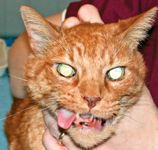
Feline Oral Squamous Cell Carcinoma An Overview
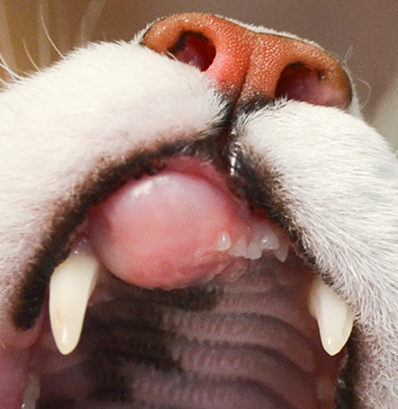
Oral Tumors In Cats An Overview Vca Animal Hospital
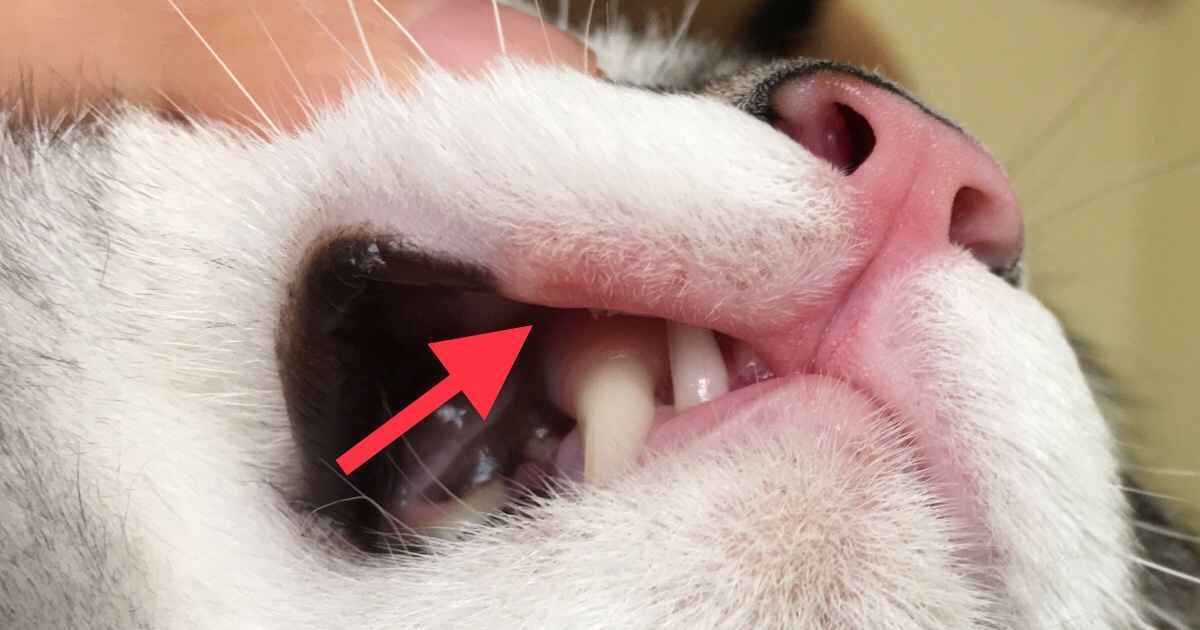
6 Causes Of Lip Sores Mouth Ulcers In Cats Walkerville Vet
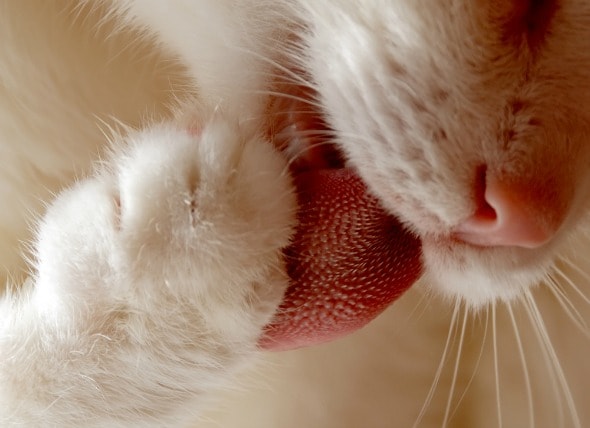
Tongue Cancer Squamous Cell Carcinoma In Cats Petmd

Mouth Cancer Gingiva Squamous Cell Carcinoma In Cats Petmd
Lilly Cancerous Mouth Oral Cancer Cat Smoking

Squamous Cell Carcinoma In A Cat S Mouth Pictures Symptoms And Treatment
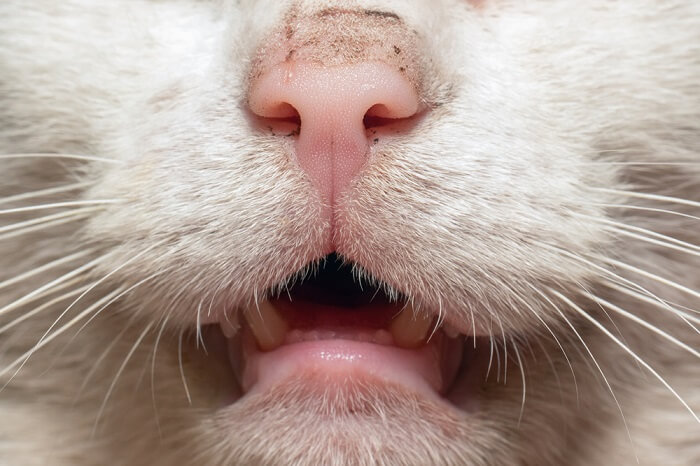
Mouth Cancer In Cats Causes Symptoms Treatment All About Cats

Oral Tumors In Cats Centennial Animal Hospital

Common Oral Tumors In Cats And Dogs Vet In Aurora The Animal Dental Clinic
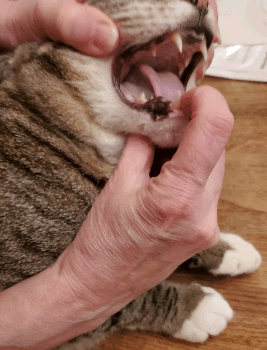
Oral Squamous Cell Carcinoma In Cats Veterinary Partner Vin

What Causes Oral Cancer In Cats And What Tests You Need To Know About Vlog 125 Youtube
Lilly Cancerous Mouth Oral Cancer Cat Smoking

Pet Talk Feline Oral Cancer A Silent But Deadly Disease In Cats Oregonlive Com
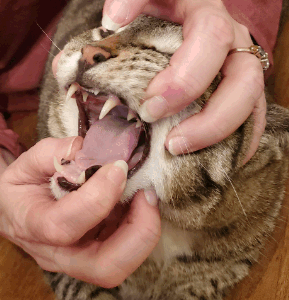
Oral Squamous Cell Carcinoma In Cats Veterinary Partner Vin
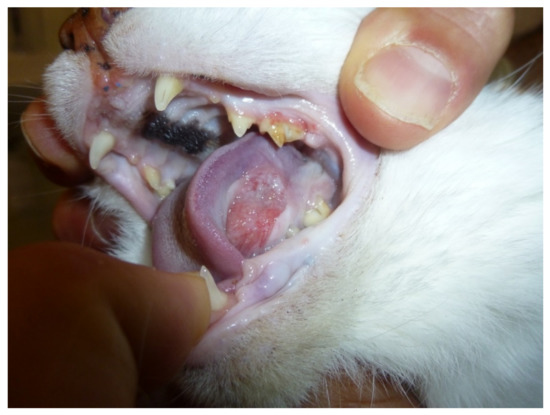
Biology Free Full Text Companion Animal Model In Translational Oncology Feline Oral Squamous Cell Carcinoma And Canine Oral Melanoma Html
/GettyImages-1153036922-be707bfa0a7c42999dc033c7aa8d8c4d.jpg)
